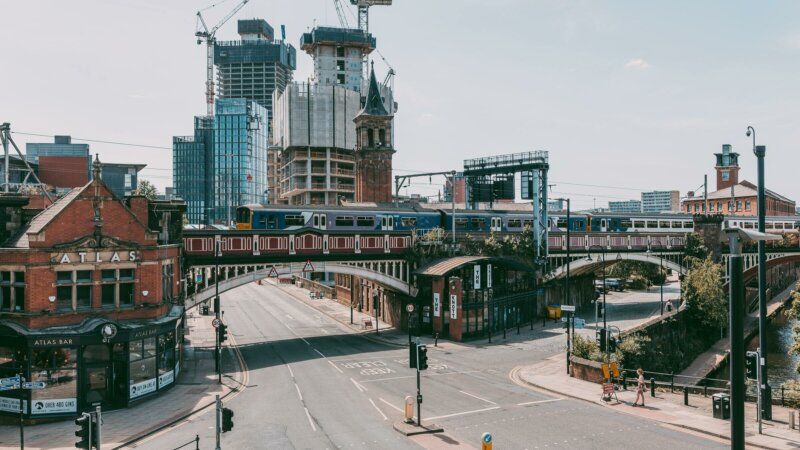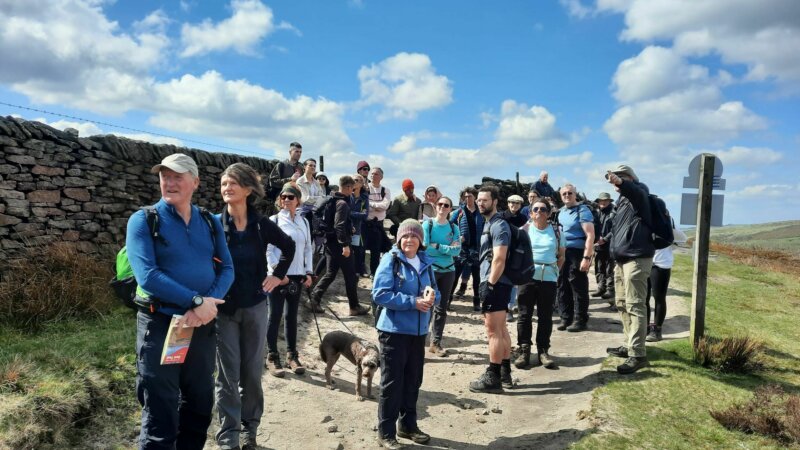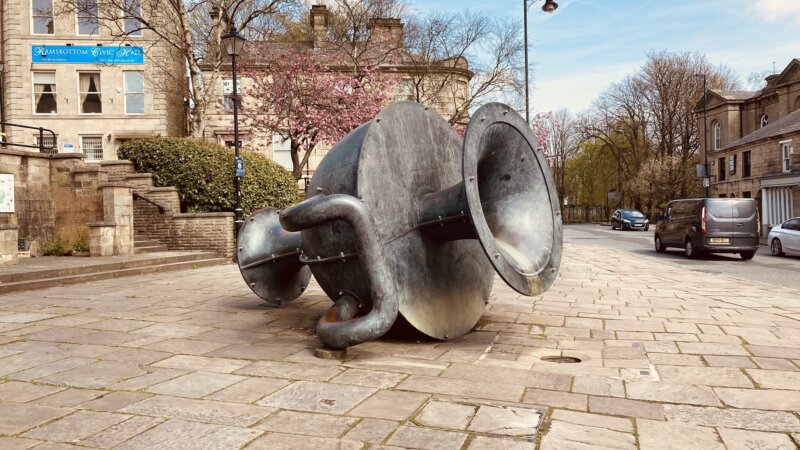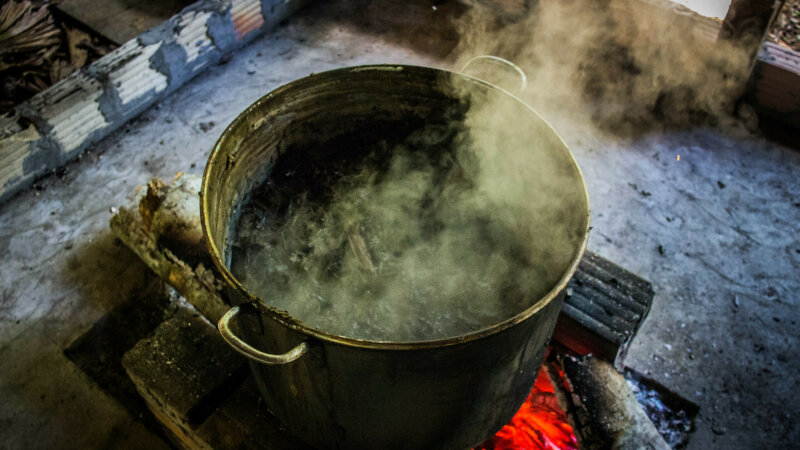Solid Air
Amongst the myriad other environmental issues that we face in our day to day lives, air pollution tends to get lost. It’s easy to forget about the air that we are breathing in. Now that we don’t get toxic smogs and weeklong fogs, the threat that it poses is not as immediately visible as fly-tipping and oil and sludge in our waterways.
Living in a city, especially an ex-industrial one like Manchester, the air that we are breathing in should absolutely be more of our concern. According to Manchester City Council, Manchester currently meets six of the air quality objectives relevant to the Local Air Quality Management (LAQM) as laid out in the Environment Act of 1995 – for lead, sulphur dioxide, benzene, butadiene, carbon monoxide and PM10 particulates. However, as in most cities in the UK – and the world over – the principal pollutant of concern in Manchester is Nitrogen Dioxide (NO2), which can increase the likelihood of respiratory problems and significantly impact people with asthma by causing more frequent and intense attacks.
In July, the Department for Environment, Food and Rural Affairs and the Department for Transport released the ‘UK plan for tackling roadside nitrogen dioxide concentrations’, which laid out the government’s plan for tackling the issue of NO2 pollution in our urban areas and beyond. In the report, they remind us that the government is already committed to investing over £2.7 billion in air quality and cleaner transport, and have done this by creating all manner of grants and funds which are supposed to encourage local authorities to act on the issue of air pollution.
According to Friends of the Earth, the picture is nowhere near as rosy as we would be led to believe. Their analysis of the government’s Air Quality Plan shows that thousands of people will be breathing in dangerous air in the North West as there are no plans for action in certain areas, despite toxic levels of pollution. Salford and Trafford are predicted to have illegal levels of air pollution until 2020, whereas Manchester City Council as well as Stockport, Tameside, Bolton and Bury Councils are all predicted to have illegal levels of air pollution until 2021. In spite of these shocking figures, the only action each borough is expected to undertake to rectify the issue is to produce a local action plan. Even more shockingly, Burnley and Oldham are predicted to have illegal air pollution levels until 2019 and there is no specific action that they need to undertake.
The Government’s own analysis clearly shows that Clean Air Zones – areas in which the most polluting vehicles are charged to enter – are the quickest way to clean up our toxic air. But despite this, the government has suggested no new Clean Air Zones across the country. Friends of the Earth has been calling on the government to urgently introduce Clean Air Zones in all the locations predicted to have illegal levels of air pollution beyond next year. The environmental charity is also calling for Theresa May to provide a safety net for drivers by introducing a comprehensive diesel scrappage scheme funded by a ‘diesel-gate levy’ on manufacturers.
Regarding the report, Richard Dyer, Friends of the Earth North of England campaigner, said:
“The government plans appear to wash their hands of doing anything to protect thousands of people in the North West breathing dangerous air… Despite their own modelling showing that air pollution is going to choke Oldham [and] Burnley residents for years to come, the government has decided to do precisely nothing about it.
“This is a despicable dereliction of duty. Ministers know as well as anyone that Clean Air Zones are essential to give us breathable air fast. The fact that they have not only not failed to introduce the best measure to protect people’s health, but put in place no new measures at all, is an absolute scandal.”
The refusal to take action is serious. Figures released by Public Heath England in another report, Estimating Local Mortality Burdens associated with Particulate Air Pollution, show that, despite a considerable decrease in outdoor air pollution over recent decades, air pollutants are, although perhaps not directly causing loss of life, definitely contributing to it, with Friends of the Earth estimating that air pollution leads to nearly 3,500 early deaths in the North West every year.
There are obviously a few steps we can take as individuals to reduce the level of pollutants in the air, such as choosing to use more sustainable forms of transport like cycling or taking the bus, but this is not always possible and the impact is negligible unless undertaken in large numbers.
As it stands though, more clearly needs to be done to solve the issue of air pollution, but with the government choosing to ignore what would be the quickest way to tackle the problem and instead choosing to pass the buck to our already overstretched local authorities, the future looks smoggy.





